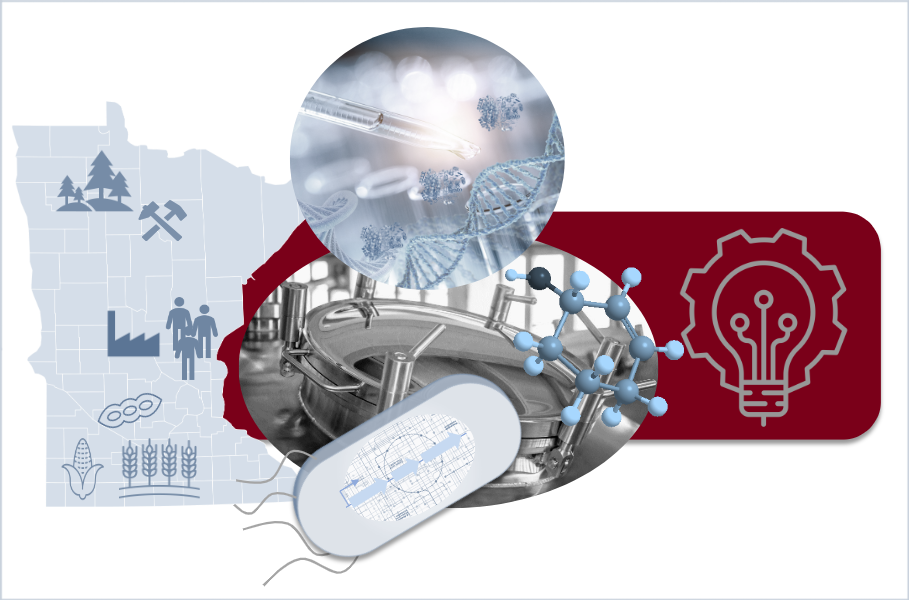
The Research and Innovation Office (RIO) and the Biotechnology and Biomanufacturing Innovation Center (BBIC) are excited to announce the 2024 recipients of the Biotechnology and Biomanufacturing Seed Grants. Six projects received a total of $795,392 in funding over the next two years. Among the awardees, five colleges/units and two UMN campuses (Twin Cities and Duluth) were represented.
Projects focused on using biotechnology and biomanufacturing to develop solutions related to environmental sustainability and climate change as well as using Minnesota-based resources to expand a regional bio-economy, including:
- Partnering with a Minnesota power generator to explore using biochar, a solid material made from biomass, for processing hazardous byproducts of electrical generation from coal-burning power plants
- An environmentally-friendly alternative to replace existing fossil fuel-based processes for ammonia synthesis
- Testing new methods of microbial fermentation to convert food waste into more nutrient-dense and more digestible animal feed
- Exploring the use of fungi for carbon capture and storage
- Using genetically-enhanced Omega-3-producing black soldier flies to convert organic waste into nutritious animal feed
- Developing biochar-based building materials to reduce the embodied carbon of the built environment, sequester CO2, and contribute to a regional bio-economy
Claudia Schmidt-Dannert, PhD, who is a Distinguished McKnight University Professor of Biochemistry Molecular Biology and Biophysics in the College of Biological Sciences and BBIC Director, was impressed by the quality and diversity of the submissions and is excited to see these projects start to take shape.
"The selected seed grants cover diverse research topics with a high potential for innovation that will contribute to the biotechnology ecosystem at the University and in Minnesota," said Schmidt-Dannert. "I am looking forward to seeing these projects launch and grow into larger research endeavors over time."
In December 2023, a kickoff event was held for the opening of BBIC, which builds on existing UMN strengths in biotechnology to build a biomanufacturing ecosystem in Minnesota that leverages our state's natural resources and aligns with federal investments. These seed grants were one of the first steps in launching the center. Next steps for BBIC include building partnerships with internal and external stakeholders, including companies and communities, to learn about needs and opportunities for advancing biotechnology and biomanufacturing in Minnesota.
BBIC represents one of the 14 high impact research themes identified by the Research 2030 workshop.